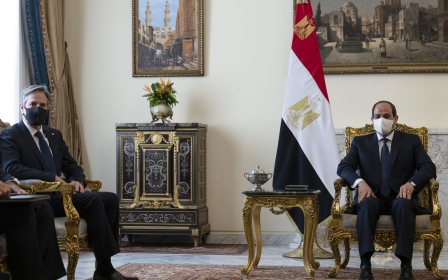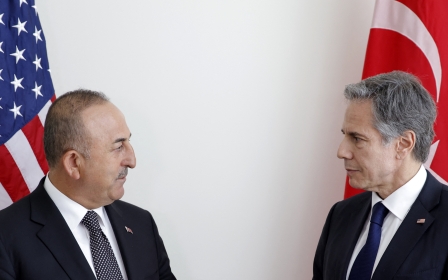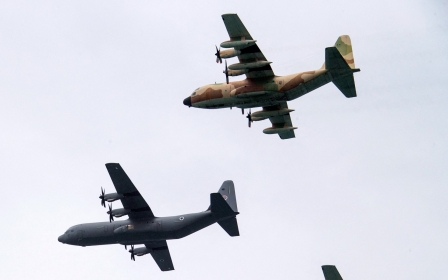Biden administration approves large sale of anti-tank missiles to Egypt

The Biden administration informed Congress on Thursday that it has approved a potential sale of $691m worth of anti-tank missiles and other equipment to Egypt.
The sale, if completed, would include 5,070 TOW 2A anti-tank missiles, tools, equipment and training services.
The weapons would help Egypt replenish its existing stockpiles of armaments and be used for counter-terrorism operations and border security operations, according to a statement released by the Department of Defence.
"This proposed sale will support the foreign policy and national security of the United States by helping to improve the security of a Major Non-NATO Ally that continues to be an important strategic partner in the Middle East," the statement added.
Egypt has been engaged in a years-long campaign against militants in the Sinai peninsula. Earlier this month, the Islamic State group claimed responsibility for an attack that killed 11 Egyptian soldiers in the Sinai.
New MEE newsletter: Jerusalem Dispatch
Sign up to get the latest insights and analysis on Israel-Palestine, alongside Turkey Unpacked and other MEE newsletters
A country of more than 100 million straddling the Middle East and North Africa, Egypt is a strategic US ally in the region and home to the Suez Canal, the vital shipping artery through which 12 percent of world trade passes.
It receives about $1.3bn in US military aid annually, the second-highest amount of any country after Israel.
However, ties between the two allies have come under strain over the Biden administration's critique of human rights issues in the country.
Last year, the administration withheld $130m in military assistance to Egypt, citing human rights issues. That decision was criticised by some US lawmakers who said it didn't go far enough.
In recent years, Egypt has also diversified its suppliers of armaments, striking deals with France and Russia. Between 2017 and 2021, Moscow was the single largest provider of arms to the country, as Egyptian President Abdel Fattah el-Sisi looked to hedge against reliance on the US.
But Russia's invasion of Ukraine and western sanctions have hamstrung Moscow’s defence industry, raising hopes among US officials that they can pry Egypt, as well as other Middle Eastern states, away from the Kremlin’s orbit.
The State Department's 2023 budget proposal included a carve-out de-linking Egyptian human rights conditions from some military aid to the country, a move US Secretary of State Anthony Blinken said would give the US "maximum flexibility" in its approach to arms sales.
He said Russia's stalled invasion of Ukraine and the poor performance of its armaments might lead Egypt to reconsider its relationship with the Kremlin.
"That presents a strategic opportunity for us, one we want to make sure that we also have [the] flexibility to take advantage of."
On a trip to the region this month that included a stop in Egypt, the new commander of all US forces in the Middle East, Army General Michael "Erik" Kurilla, said he had gained "a new appreciation for Egypt's prominent role in the Middle East".
Kurilla's predecessor told Congress in March that he believed the United States would sell Egypt F-15 aircraft, in another sign that the US is looking to boost arms sales to Egypt.
Middle East Eye delivers independent and unrivalled coverage and analysis of the Middle East, North Africa and beyond. To learn more about republishing this content and the associated fees, please fill out this form. More about MEE can be found here.





